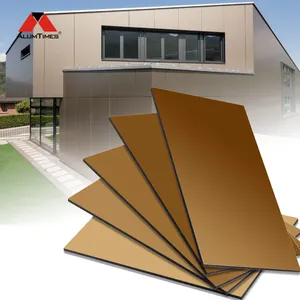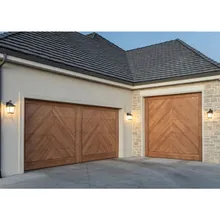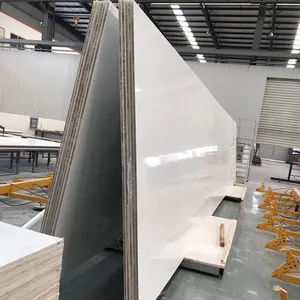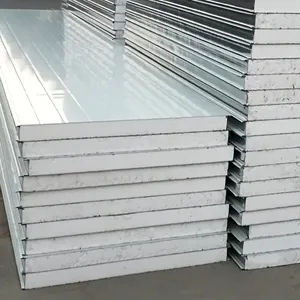Exploring the Versatility of Sandwich Panels
Sandwich panels serve as a cornerstone in modern construction, offering a blend of durability and efficiency for various applications. These composite structures consist of two outer skins surrounding an insulating core material, which can range from polyurethane foam (PUF panel) to mineral wool, each selected for its unique properties.
Types and Materials of Sandwich Panels
The diversity of sandwich panels is evident in their material composition. EPS panels, known for their lightweight and insulating properties, are commonly used in a range of environments. PIR panels are favored for their enhanced fire resistance and thermal insulation, making them suitable for stringent climate demands. For those seeking advanced strength-to-weight ratios, aluminium sandwich panels provide a robust yet lightweight solution, often employed in architectural applications.
Applications and Features
The application of sandwich panels extends across industries, from the construction of puf panel houses to the installation of metal roof sandwich panels. Their modular nature allows for rapid assembly, significantly reducing construction times. The metal sandwich panel roof systems are particularly noted for their thermal regulation, contributing to energy efficiency in buildings. In contrast, wall panel sandwiches offer excellent acoustic and thermal insulation for exterior and interior walls.
Advantages of Sandwich Panels
Among the advantages of sandwich panels is their exceptional insulating performance, which can help maintain internal temperatures and reduce energy costs. The fire-retardant properties of materials like mineral wool make certain types of sandwich panels ideal for enhancing fire safety. Additionally, the lightweight nature of panels like the aerocon panels facilitates easier handling and installation without compromising structural integrity.
Environmental Considerations
Environmental sustainability is a critical aspect of modern construction materials. Sandwich panels, particularly those with eco-friendly cores like PUF, contribute to greener building practices by minimizing energy consumption. The durability and longevity of these panels also mean reduced need for replacements, further lessening the environmental impact over the lifespan of a building.
Choosing the Right Sandwich Panel
Selecting the appropriate sandwich panel for a project involves considering factors such as thermal performance, fire resistance, and structural requirements. While the cost of sandwich panels can vary based on these factors, the long-term benefits of energy savings and durability often present a cost-effective solution. Prospective buyers can explore a comprehensive range of options on Alibaba.com to find the panel that aligns with their specific needs.











































 浙公网安备 33010002000092号
浙公网安备 33010002000092号 浙B2-20120091-4
浙B2-20120091-4